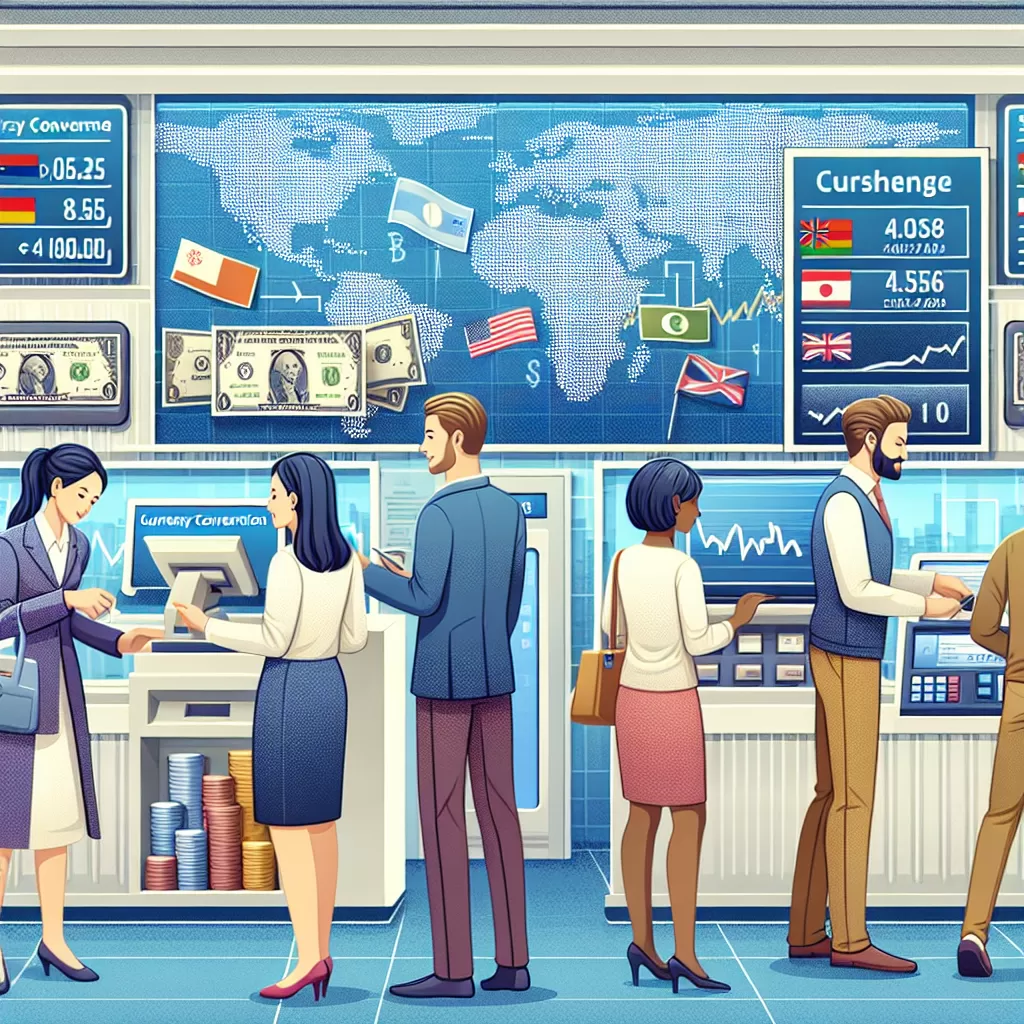What Banks Do Currency Exchange
Follow Currency Mart April 10, 2024
Where to purchase Foreign Currencies?

Introduction
Currency exchange is a vast world of fluctuating rates and global transactions. Banks play an integral role in this process, serving as the key catalysts for international trade, overseas transfers, and foreign investments. They act as guardians, controlling the flow of currency from one country to another. This article will inform you about the services provided by bank in terms of currency exchange.What is Currency Exchange?
Currency exchange is the process where one national currency is converted into another, facilitating international trade and investment. The exchange rate between two currencies determines how much one currency is worth in terms of the other, with rates constantly changing due to economic factors such as inflation, political stability, and interest rates. Banks and other financial institutions offer services for individuals and businesses to convert and transfer currencies with ease.Banks Offering Currency Exchange
Major global banks often provide currency exchange rates. Some of these are: • TD Bank: Offers competitive exchange rates for over 50 currencies. You can even order foreign currency online and have it delivered to your doorstep within 2 days. • Royal Bank of Canada: RBC offers an excellent online platform for their customers to exchange over 30 different currencies and delivery services to your home or local branch. • Bank of Montreal: Besides offering standard currency exchange services, BMO also provides an online platform which allows clients to monitor exchange rates and make transactions. • HSBC: Globally recognized, HSBC allow customers to hold multiple currencies in one account and exchange them whenever they wish.The Role of Banks in Currency Exchange
Banks fulfil several roles in facilitating currency exchange. These include: • Changing currency for customers traveling abroad or arriving from overseas. • Providing exchange facilities for businesses engaged in global trade. • Offering online platforms for real-time exchange rate monitoring and transactions. • Implementing currency hedging strategies to protect clients from exchange rate volatility.The Process of Currency Exchange in Banks
Banks follow a specific process for currency exchange. They source their currency from international foreign exchange markets, with rates based on the interbank exchange rate - the rate at which banks exchange currencies with each other. Banks add a margin to this rate, selling currency to customers at a higher rate than they bought it. This difference is known as the exchange rate spread, a significant source of revenue for banks.Factors Affecting Bank Currency Exchange Rates
Several factors influence the rates offered by banks for currency exchange. These include: • Current interbank rates. • The economic stability of the countries whose currencies are being exchanged. • Demand and supply of a particular currency in the global market. • The bank’s operating costs.Bank Currency Exchange versus Online Exchange Services
While banks offer a secure and easily accessible currency exchange service, they may not always offer the best rates due to high operating costs and added margins. Online exchange services, on the other hand, usually have lower overheads and can offer more competitive rates. However, they may not provide the level of service and security offered by banks.Conclusion
Overall, currency exchange forms an integral part of a bank's suite of services, facilitating global trade, aiding international travel, and providing investment opportunities. Before exchanging currency, it's essential to compare rates and factors like service fees to ensure you get the most out of your exchange. Impacting every sector of the global economy, the process of currency exchange underpins the interconnectedness of our world. As the guardians of this realm, banks ensure the smooth operation of these exchanges, contributing significantly to the essential mechanism of international financial transactions. Understanding how this intricate system works helps both businesses and individuals navigate the often complex world of global finance.
Where to purchase Foreign Currencies?